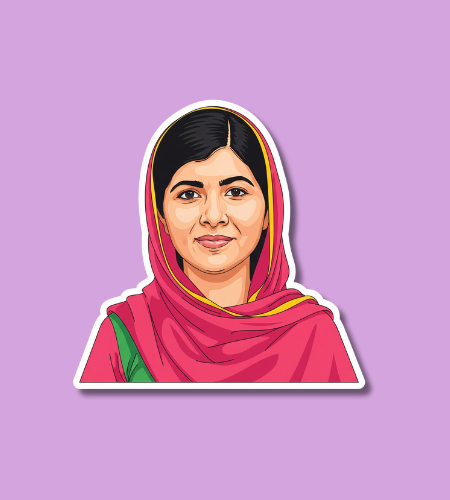Malala Day, observed on July 12, commemorates the birthday of Malala Yousafzai and honors her tireless advocacy for education equality across the globe.
History of Malala Day
Malala Day was proclaimed in response to Malala’s influential speech at the United Nations Youth Assembly on her 16th birthday—July 12, 2013—where she emphasized that “Malala Day is not my day. Today is the day of every woman, every boy and every girl…”. The UN officially recognized this day to honor her courage in promoting girls’ education and resistance to extremism. 1
Born in 1997 in Swat Valley, Pakistan, Malala began speaking out against the Taliban’s ban on girls’ schooling at just 11 years old, blogging anonymously for the BBC Urdu. In 2012, a Taliban gunman shot her—an event that vaulted her into the international spotlight and strengthened her mission. Undeterred, she continued her advocacy, co-founding the Malala Fund, completing studies at Oxford, and becoming the youngest-ever Nobel Peace Prize laureate at age 17 in 2014. 2
Why Malala Day matters
When I reflect on Malala Day, it’s not just a tribute to one courageous girl—it’s a reminder that education is a human right worth defending. Malala’s story shows how one voice, even in the face of violence, can spark global change. It makes me consider who today’s unseen voices are, and why it matters to amplify them with empathy and solidarity.
On a broader level, the day shines light on systemic barriers—poverty, conflict, gender bias—that still block education for millions. Celebrating Malala Day is a call to collective responsibility: it invites governments, communities, and individuals to think strategically and supportively. It’s about saying we see these challenges—and we’re ready to act.
- It shines a spotlight on hidden educational inequality
- It reminds us that children’s voices can reshape societies
- It calls for solidarity with those denied schooling
- It celebrates the ripple effects of one courageous stand
- It inspires hope that resilience can transform tragedy
How to observe Malala Day
You don’t need a big event to make this day meaningful. Reading Malala’s speeches—particularly her powerful UN address—can be a moment of personal reflection. Maybe you’ll share a quote with friends, raise awareness online, or donate to an education-focused charity.
Another way is connecting locally: volunteer at a literacy program, support a girl’s scholarship fund, or mentor a young student. Create space for conversation—especially with younger people—about why education matters and why equal access isn’t just a goal, but a necessity. Small steps can build momentum.
- Read or share one of Malala’s speeches to spark conversation
- Donate to or volunteer with girl‑education initiatives
- Organize a book drive or scholarship for underprivileged youth
- Mentor a young learner and share the value of education
- Host a discussion group in school or community centers
Malala Day Dates Table
| Year | Date | Day |
|---|---|---|
| 2026 | July 12 | Sunday |
| 2027 | July 12 | Monday |
| 2028 | July 12 | Wednesday |
| 2029 | July 12 | Thursday |
| 2030 | July 12 | Friday |
Subscribe to our newsletter and never miss a holiday again!

